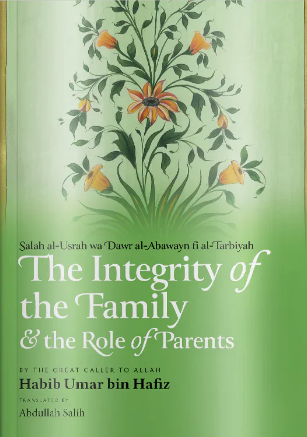Tarikhology Books
The Integrity of the Family & the Role of Parents (English & Arabic)
The Integrity of the Family & the Role of Parents (English & Arabic)
Couldn't load pickup availability
Synopsis:
In both English and Arabic cultures, the family is considered a fundamental unit of society, and parents play a vital role in maintaining its integrity. The concept of family integrity encompasses various aspects, including:
- Respect and Communication: Parents are encouraged to foster open and respectful communication with their children, promoting a sense of security and trust within the family.
- Guidance and Discipline: Parents are responsible for guiding their children and setting clear boundaries, teaching them right from wrong, and disciplining them in a fair and loving manner.
- Role Modelling: Parents serve as role models for their children, demonstrating values such as honesty, empathy, and responsibility, which are essential for building strong family relationships.
- Support and Nurturing: Parents provide emotional support and nurturing, helping their children develop physically, emotionally, and mentally.
In Arabic culture, the concept of “khilafa” (responsibility) emphasises the importance of parents’ roles in guiding and educating their children. The Quranic verse (Surah Al-Nisa’, 4:34) advises husbands to “enjoin what is good and forbid what is evil” and wives to “obey” their husbands, highlighting the mutual respect and cooperation expected within the family.
In English culture, the importance of parental involvement is emphasised through various initiatives, such as parenting classes and support groups. The concept of “parental authority” is also recognised, with parents having a responsibility to provide guidance and direction for their children.
In both cultures, the integrity of the family is closely tied to the well-being and character development of its members. By fulfilling their roles and responsibilities, parents play a crucial part in shaping the next generation and building strong, resilient families.
This book is new!
Share


